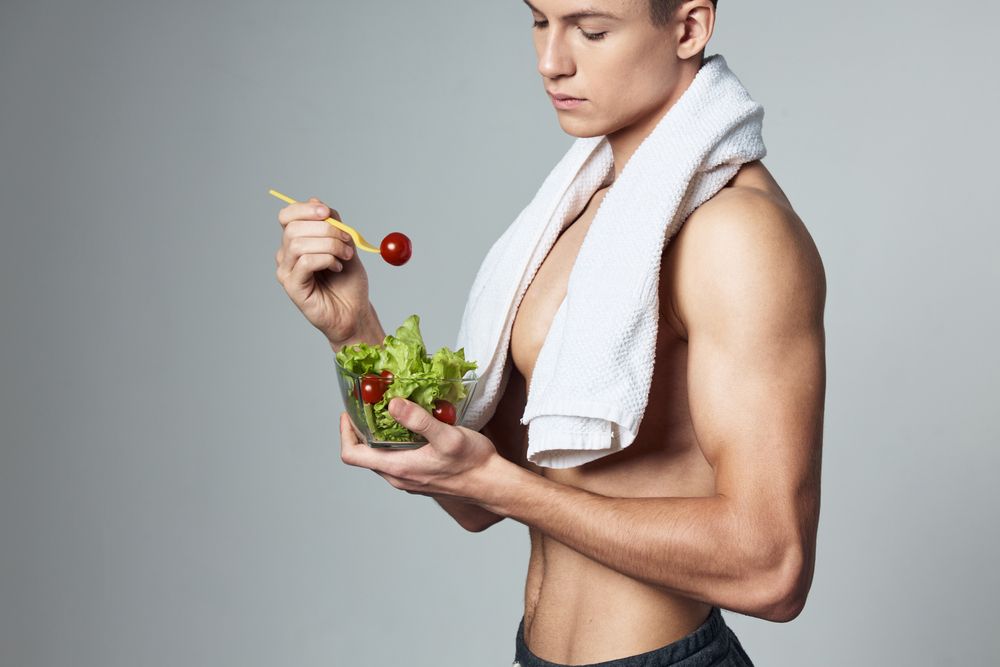Building muscle on a vegan diet is not only achievable but can be highly effective and sustainable when approached with the right strategies. Plant-based diets are packed with protein sources, vitamins, minerals, and antioxidants, all of which can support muscle growth and overall health. Whether you’re a new vegan or an experienced athlete, these tips can help you gain muscle on a vegan diet.
1. Focus on High-Quality Plant Protein Sources
Protein is the cornerstone of muscle growth, as it supplies the amino acids needed for muscle repair and development. While animal products are complete proteins (meaning they contain all nine essential amino acids), several plant-based proteins are also complete or can be combined to meet your needs.
Great Plant Protein Sources:
- Lentils: High in protein and fiber, lentils are versatile and easy to add to salads, soups, and stews.
- Chickpeas and Beans: These are excellent protein sources and can be used in a variety of recipes, from curries to snacks like roasted chickpeas.
- Quinoa: A complete protein that’s rich in fiber, quinoa is great in salads, stir-fries, or as a side dish.
- Tofu, Tempeh, and Edamame: Soy-based products like tofu and tempeh are complete proteins and easy to incorporate into meals.
- Seitan: A high-protein wheat gluten product that’s incredibly versatile, ideal for meat substitutes in various dishes.
Consider pairing different plant proteins throughout the day to ensure you get all essential amino acids, such as combining grains with legumes (e.g., rice and beans).
2. Eat Enough Calories to Support Muscle Growth
To gain muscle, your body requires an energy surplus, meaning you need to consume more calories than you burn. Many plant foods are lower in calories, so it’s essential to consume enough volume to meet your caloric needs.
Calorie-Dense Plant Foods:
- Nuts and Nut Butters: Almonds, peanuts, and cashews are high in calories and healthy fats. Add them to smoothies or eat as snacks.
- Seeds: Chia seeds, flaxseeds, and hemp seeds are not only calorie-dense but are also great sources of protein and omega-3 fatty acids.
- Whole Grains: Foods like oats, rice, and whole-grain bread provide complex carbs, which are essential for muscle recovery and energy.
- Avocado and Olive Oil: Both are healthy fats that can easily increase your caloric intake without excessive bulk.
Keeping a food journal or using a tracking app can be helpful to ensure you’re consuming enough calories for muscle gain.
3. Prioritize Strength Training and Progressive Overload
Strength training is crucial for building muscle, regardless of your diet. Focus on a balanced workout routine that targets all major muscle groups, including compound exercises like squats, deadlifts, bench presses, and pull-ups, which work multiple muscles at once and are effective for growth.
Progressive Overload:
- Increase weights, reps, or sets gradually to keep challenging your muscles.
- Change exercises or intensity over time to avoid plateaus.
- Track your workouts to monitor progress and make necessary adjustments.
Aim to work each muscle group two to three times per week with adequate recovery in between.
4. Plan Your Meals to Include Protein with Every Meal
On a vegan diet, spreading protein intake throughout the day can be more effective than consuming a large amount at once. Aim for a protein source with every meal and snack to support muscle recovery and growth.
Sample High-Protein Vegan Meal Plan:
- Breakfast: Oatmeal with chia seeds, nut butter, and a sprinkle of hemp seeds.
- Lunch: Quinoa salad with black beans, avocado, and mixed vegetables.
- Snack: A smoothie with pea protein, spinach, and frozen berries.
- Dinner: Stir-fried tofu with brown rice and broccoli.
- Post-Workout: A protein shake with plant-based protein powder, banana, and almond milk.
Having protein with each meal keeps amino acids readily available for muscle repair throughout the day.
5. Supplement Wisely
Some nutrients are harder to obtain on a vegan diet or may be beneficial in supplement form to support muscle growth and performance.
Key Supplements:
- Vegan Protein Powder: Pea, hemp, and soy protein powders are effective for meeting higher protein needs, especially post-workout.
- BCAAs (Branched-Chain Amino Acids): While not always necessary, BCAAs can be helpful, particularly if you work out in a fasted state or struggle to get enough complete protein.
- Creatine: Naturally found in animal products, creatine is popular for muscle growth and strength gains. Vegan creatine supplements are widely available and can be effective.
- Vitamin B12: Essential for energy and red blood cell production, B12 is not naturally found in plant foods, so supplementing is recommended for vegans.
- Omega-3 Fatty Acids: Found in algae oil, these essential fatty acids support heart and muscle health, making them a good addition to a vegan diet.
Consult with a healthcare professional before adding new supplements, particularly if you’re new to training or transitioning to a vegan diet.

6. Don’t Forget Carbohydrates for Energy
Carbohydrates provide the energy needed for strength training and muscle growth. Complex carbs fuel your workouts and support recovery, which allows you to train consistently and achieve muscle gains.
High-Carbohydrate Vegan Foods:
- Sweet Potatoes: Rich in vitamins and slow-digesting carbs, ideal for a pre-workout meal.
- Whole-Grain Bread and Pasta: These can make meals more filling and provide a steady energy source.
- Brown Rice and Oats: Great options for energy-dense, fiber-rich carbs to support sustained workouts.
- Fruits: Bananas, apples, and berries make for great pre- or post-workout snacks, providing quick-release carbs.
By prioritizing complex carbohydrates in your diet, you’ll have the energy needed for high-performance training sessions.
7. Ensure Proper Recovery and Rest
Muscle growth doesn’t happen in the gym—it happens during rest and recovery. Aim for seven to nine hours of quality sleep per night to allow your body to repair and grow muscle tissue. Inadequate rest can hinder progress and increase the risk of injury.
In addition to sleep, consider incorporating rest days between intense workouts. Overworking your muscles without allowing time for recovery can lead to burnout and injury. Active recovery activities like yoga, stretching, or light walking can promote blood flow and support muscle repair.
8. Track Your Progress
Monitoring your muscle growth journey can be motivating and informative. Keep track of your workouts, body measurements, and dietary intake to gauge what’s working and where adjustments may be needed.
Ways to Track Progress:
- Body Measurements: Record measurements of your chest, arms, waist, and legs to visually track muscle growth.
- Photos: Progress photos can show changes over time that might not be as visible in the mirror day-to-day.
- Strength Goals: Note improvements in strength, such as increased weights or reps in your exercises.
Tracking gives you insights into your progress, allowing you to refine your approach and stay motivated.
9. Stay Consistent and Patient
Building muscle is a gradual process that requires consistency and patience. Staying committed to your diet, training, and recovery plan will yield results over time. It’s easy to get discouraged if progress seems slow, but remember that muscle building is a long-term commitment.
If you find it challenging to maintain consistency, seek support from a coach, nutritionist, or online community. Having a support system can provide motivation and accountability, helping you stay on track with your goals.
10. Embrace a Balanced and Enjoyable Diet
Finally, remember that a balanced and enjoyable vegan diet can help you stay committed. Incorporate a variety of flavors, spices, and cuisines to keep your meals interesting and prevent diet fatigue. Vegan cooking offers an array of creative options, from hearty grain bowls to delicious curries and smoothies.
Experimenting with new recipes and ingredients can keep your diet enjoyable and ensure that you’re getting a wide range of nutrients. The more enjoyable your diet, the more likely you are to stick with it in the long run.
Building muscle on a vegan diet is both achievable and sustainable with a well-rounded approach. By focusing on high-quality plant protein, consuming enough calories, training effectively, and allowing ample recovery, you can reach your muscle-building goals while enjoying the health benefits of a plant-based diet. With consistency, patience, and the right strategies, you’ll be well on your way to building muscle and maintaining a strong, vibrant vegan lifestyle.





